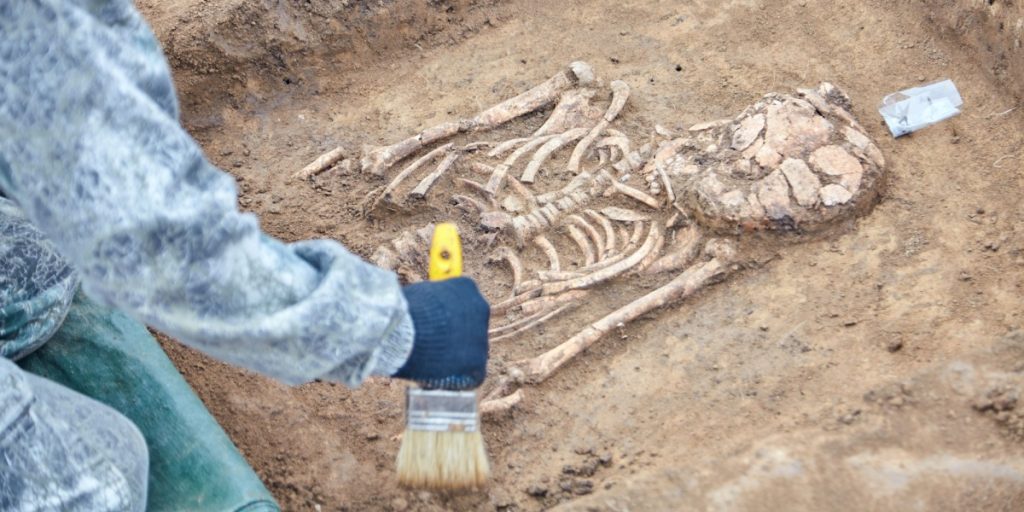Archaeologists have discovered a grim trench filled with human and animal remains at the site of a field hospital.
Others are reading now
Archaeologists have unearthed a “gore” trench filled with human and animal remains at Mont-Saint-Jean farm, the site of a field hospital during the Battle of Waterloo in 1815.
This discovery offers a unique glimpse into the aftermath of one of Europe’s most famous battles, shedding light on how the dead and wounded were cleared from the battlefield.
At the time, the trench appears to have been dug to quickly dispose of remains from the field hospital after the battle. The pit contains a mix of human and animal remains, separated by ammunition boxes taken from soldiers’ satchels.
Archaeological director Professor Tony Pollard from the University of Glasgow said, “I can’t think of any other site that has this combination of elements – it’s truly unique.”
Also read
The careful separation of human and animal remains suggests that the soldiers handling the bodies sought to offer “a level of dignity and respect despite the horrific scene.”
n the northern section of the trench, the team found the remains of an ox and at least seven horses, some of which appear to have been butchered, while others were euthanized with musket shots to the head.
To the south, archaeologists uncovered a pile of amputated human limbs, many still showing signs of being removed by a surgeon’s saw. These limbs were found alongside a human skeleton discovered during a previous excavation in 2022.
This site was part of the Duke of Wellington’s field hospital during the battle.
Healing Through History
The trench was excavated by Waterloo Uncovered, an organization that combines archaeology with veteran support.
The excavation program provides veterans with the opportunity to engage in archaeology while receiving mental health and wellbeing support.
For many, the experience of digging up the remains of soldiers and animals from a battlefield has emotional resonance, helping them process their own experiences of war.
“I thought the soldier would affect me the most, but it was actually the horses. It just brought me back to the horrors of that day,” said Clive Jones, a 66-year-old veteran of the Welsh Guards. He was referring to his time stationed during the 1982 Hyde Park bombing in London, which killed 11 soldiers and seven horses.
Similarly, John Dawson, a 35-year-old veteran who was severely injured while serving in Afghanistan, said the experience helped him regain his confidence. “This is the first trip I’ve done without a support worker… I decided to give it a try, and it’s exceeded all of my expectations,” he shared.
Abigail Boyle, chief executive of Waterloo Uncovered, explained, “It may seem counterintuitive to put injured veterans back on a battlefield, but it’s actually extremely beneficial.”


